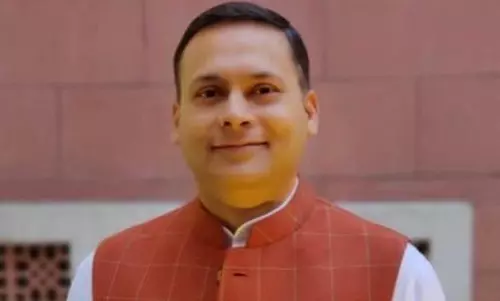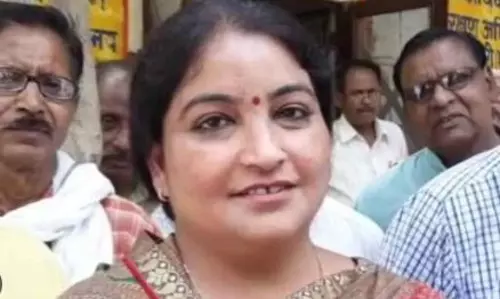
The wealth of political leaders - and of parties
text_fieldsThe Supreme Court verdict that the candidates contesting elections must disclose the details of assets and sources of income for them, their spouses and dependents, reiterates the imperativeness of transforming the electoral system and its guidelines in India.
The verdict of the bench comprising Justices J Chelameswar and S Abdul Nazeer while ruling on a public interest litigation (PIL) filed by an NGO Lok Prahari, will be of much help in reclaiming the credibility of the country’s democratic order and the purity of the electoral process. According to the existing law, a candidate is required to disclose only the total income given in the income tax return, in the affidavit submitted along with the nomination paper. But with the new court verdict, candidates are required to disclose the assets and sources of income of the dependents as well. In the new verdict, it is not specifically made clear as to who will be included as dependents. Therefore the responsibility of defining such details in the amended rules is entrusted with the Election Commission (EC).
The court through its landmark verdict in the history of India’s election reforms, openly shares the apprehensions regarding the decay faced by the politics in the country. The court has unequivocally stated that the unknown sources of income of the lawmakers and the misuse of the Constitutional posts were basically unacceptable for a civilized society. The Supreme Court also warns that if such indicators of a failing democracy were left unattended, it would lead to the destruction of democracy and pave way for the rule of mafia. The apprehensions shared by court regarding the negligence of the Parliament or the EC are in reality, also those of the country’s citizens with democratic conscience.
The fundamental right of the voters to know all the relevant information about the contesting candidates is more important than the candidate’s Constitutional right to contest an election. The accumulation of assets of all legislators and their associates as well as the source of their income should be permanently monitored. There should be a system in place to examine whether such people are eligible to continue in the assembly and the Parliament. The increase in income without specified sources will come under the Prevention of Corruption Act, 1988. The central government should take initiatives for the amendment of the Representation of People Act, 1951 which disqualifies the legislators who amass illegal wealth, but SC did not state it as a verdict because it was a matter exclusively within the domain of Parliament. These statements in the SC court verdict are serious and demand new legislations.
If in 2004, the number of crorepatis among Lok Sabha MPs was 30 per cent, in 2014 82 per cent of legislators were crorepatis. The financial growth of people's representatives may surprise anyone, and to an extent that may defy any theory of market profits. In the enquiry by Central Board of Direct Taxes (CBDT), it was found that seven MP's and 98 MLA's had registered increase in wealth disproportionate to their income. In a comparison with earlier affidavits, those who registered unreasonable assets among MP's was 37 and among MLA's 257. In response to the query by the court about what action was taken against those who had 500 per cent increase in their wealth, the CBDT filed an affidavit which the court dismissed as meaningless. This speaks enough for the indifference of the government towards preventing corruption among legislators.
In the current situation, not only legislators but political parties too do amass wealth at a massive scale – especially the ruling parties. During the assembly elections in 2017, the total donations received by seven national parties and 16 regional parties together was Rs 1,503 crore, out of which Rs 1214 crore (92.4%) was received by the ruling party at the Centre, the BJP. And even out of that amount Rs 1,195 crore was collected via its national office. If this is the figure in the account books, how appalling would be the figure out of the books! And shouldn't such money also fall within the definition of corruption? Only when the excessive growth in the assets of political parties also are subjected to audit and enquiry, can the interests of democracy be effectively protected.























